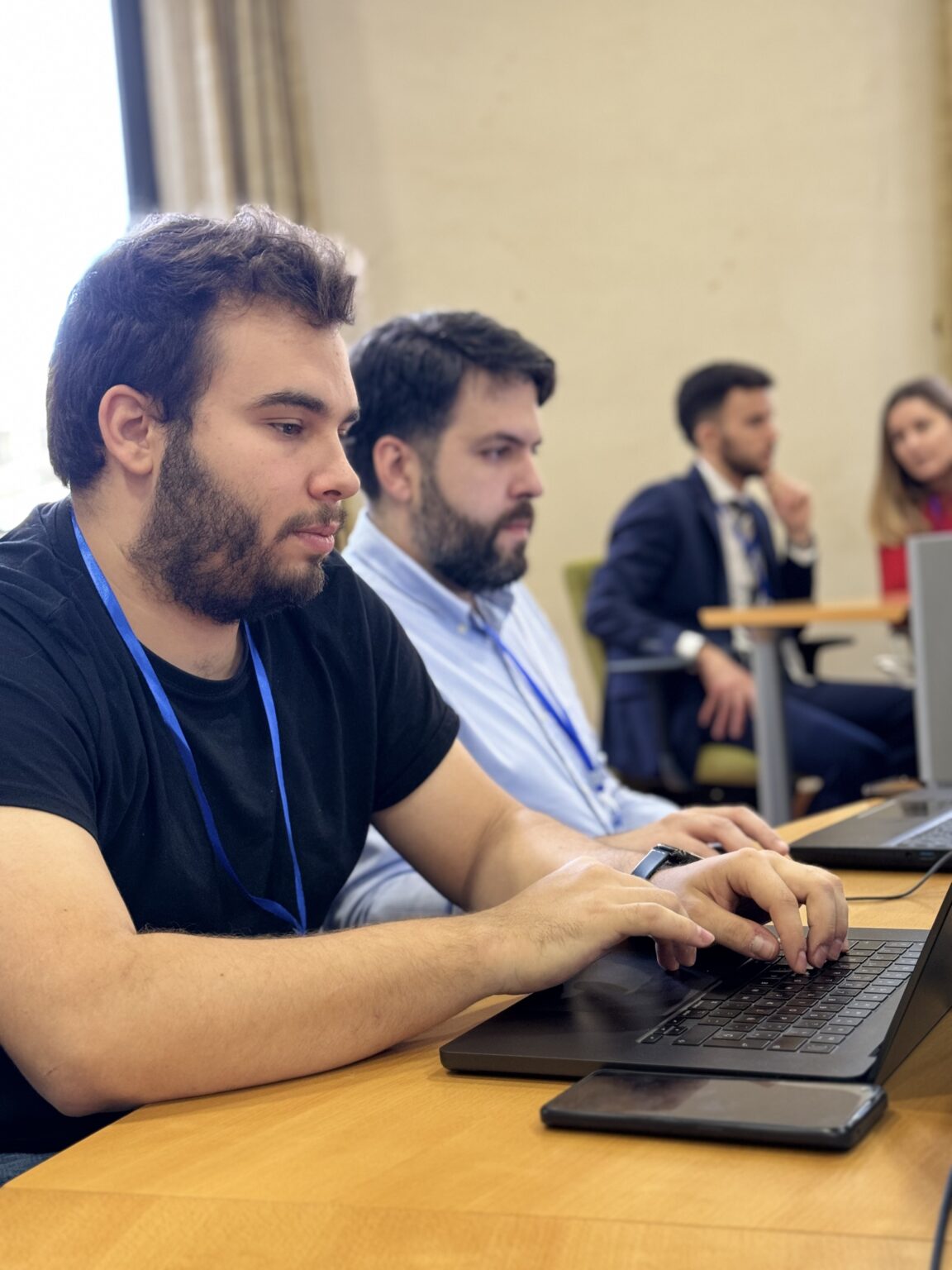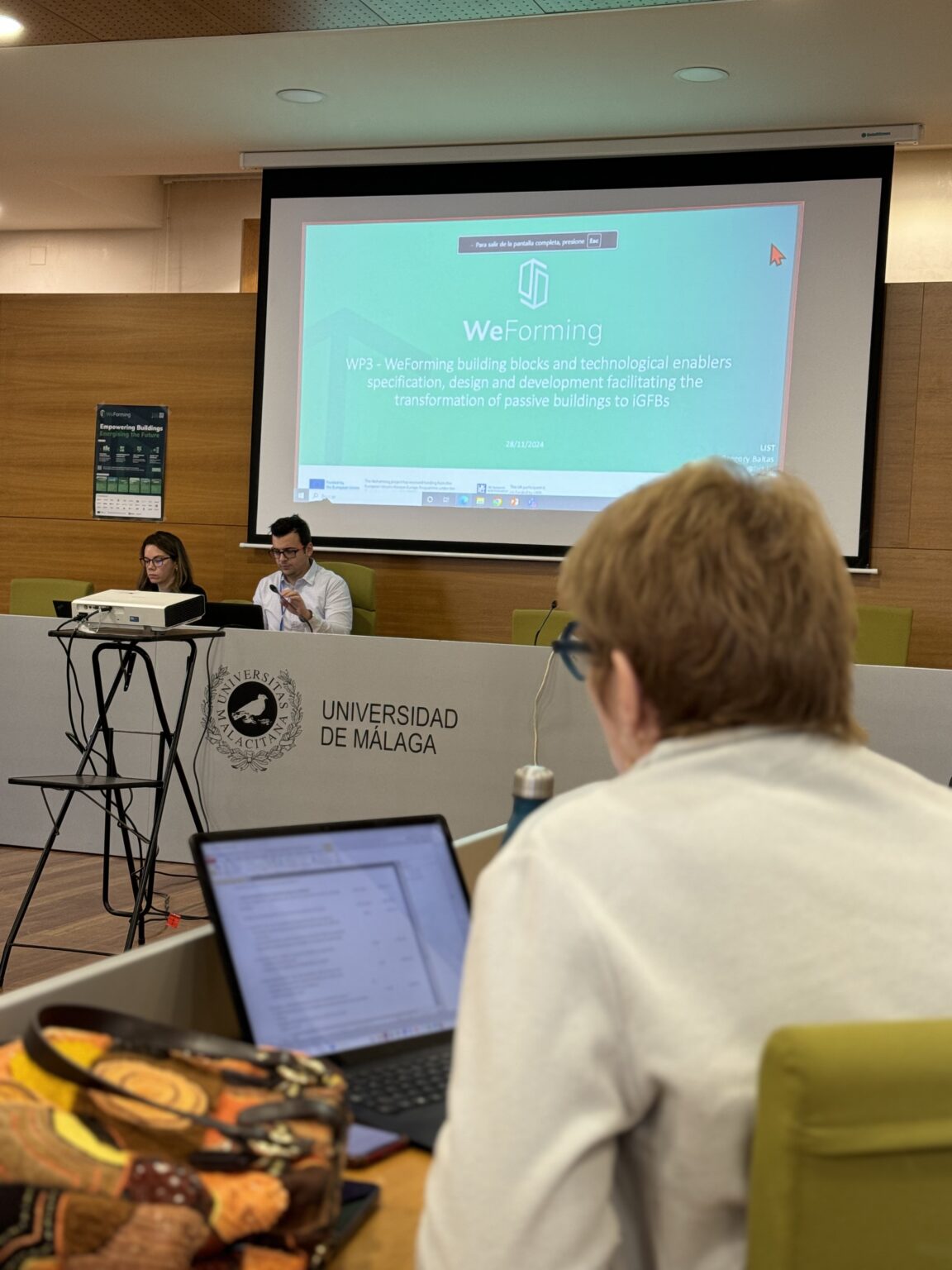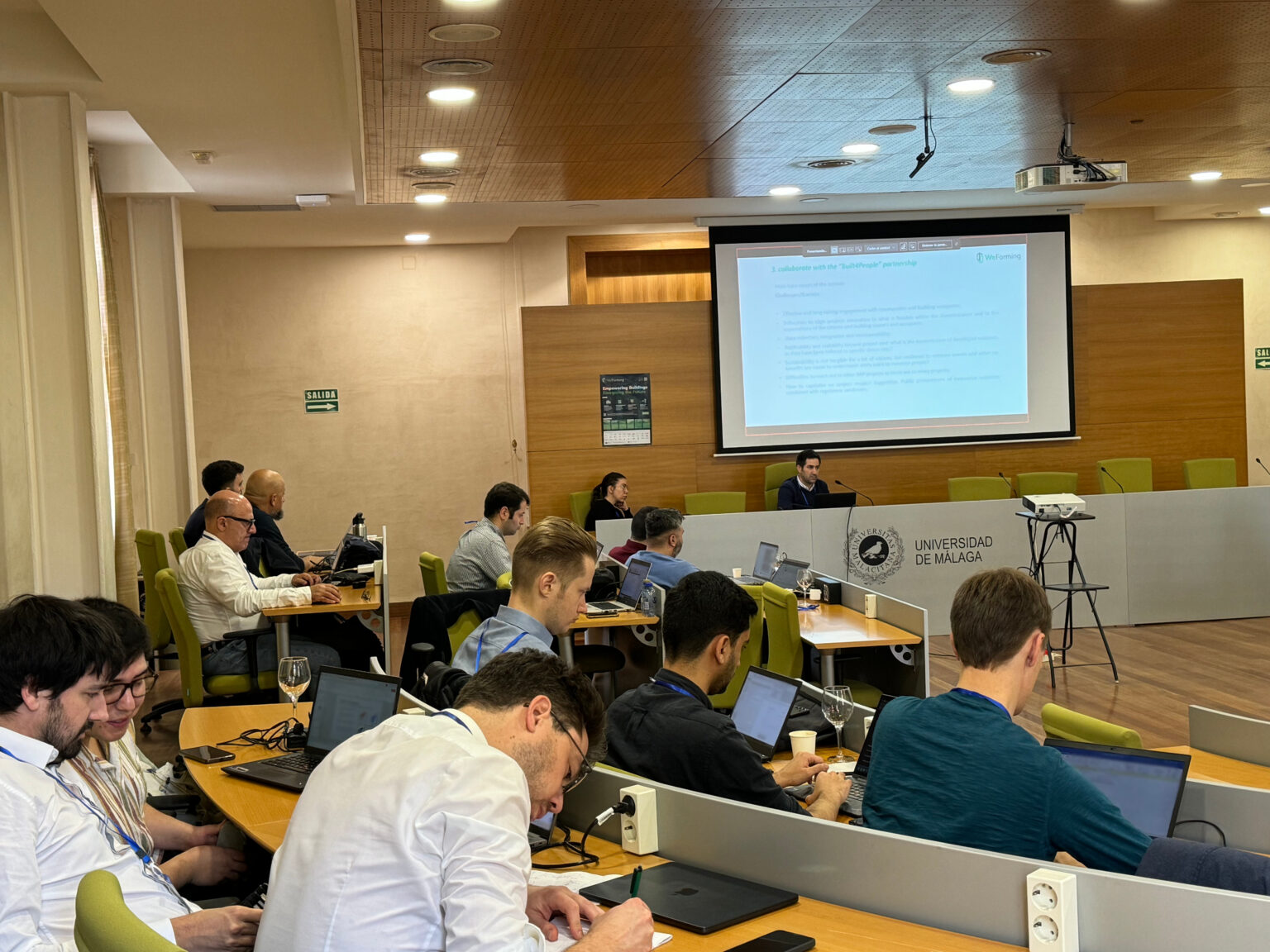The WeForming project advances in the development of smart networks and Buildings
The partners of the WeForming project, which includes AIR Institute, met last December in Málaga after a year of developments. Our colleagues, Diego Valdeolmillos and Carlos Álvarez, attended to present the progress made by AIR Institute. WeForming is revolutionising energy management by transforming buildings into Intelligent Grid-Forming Buildings (iGFBs), meaning active participants in the management of the energy grid. The project's objective is to empower end-users to play a central role in optimising energy consumption.

Key Discussions and Outcomes
Business models: Development of potential business models for broader adoption of iGFBs in relevant sectors and stakeholders of the energy ecosystem. The proposed business models are encompassing One Stop Shop, Product as a Service, Innovative Financial Schemes and New revenue models. These efforts focus on the WeForming project’s role in enabling the development of Smart Cities emphasizing regulatory compliance.
Energy data space in buildings: ED presented the WeForming Data Space Connector and middleware, highlighting its capabilities for data sharing and real-time collaboration. It facilitates seamless, secured and trusted data sharing. This prototype is user friendly and empowers and encourages building offers end-users to easily share data and information with the energy ecosystem. A Service Catalogue is developed by the project to support data and service interoperability.
Technological enablers: A prototype of WeForming software and hardware technological enablers were presented, this is: AI/ML services to aid decision-making stakeholders, cloud operational platforms for energy, Digital Twin Services, digital models (IFC-based BIM models) as well as a prototype of the Real-Time Controller and the Power Processing Hub.
The consortium reviewed progress on communication strategies and discussed plans for enhanced collaboration with synergy projects such as the Sustainable Energy Hub.

Demo discussions
- Germany: Achieved bidirectional charging for electric vehicles (EVs), enabling two-way energy flow. EVs can now act as mobile energy storage units, enhancing grid flexibility and resilience.
- Spain: Solar photovoltaic installations are complete, officially launching the energy community. Local workshops are in progress, and by 2025, the first energy bills will be fully powered by green energy sources.
- Portugal: At the Palácio do Gelo shopping mall in Viseu, a decade’s worth of siloed energy data is fueling cutting-edge AI-driven energy management tools. The site is evolving into an intelligent grid-forming building, seamlessly integrating energy flexibility and sustainability in its operations
- Croatia: On the island of Krk, the Smart Island Krk utility company is collaborating with the local community to advance sustainability and self-sufficiency. A lighthouse group of early adopters is actively testing WeForming’s initial developments, driving tailored energy innovations to their local needs.
- Luxembourg: The demo has seen notable progress with the integration of W-IBRA Dataspace strategies, advancements in forecasting, and the development of digital twin tools. On the hardware side, the high-density power processing hub has been delivered, tested extensively, and is now ready for procurement.
- Belgium: Carnot batteries, paired with seasonal thermal energy storage, optimize multi-energy district decongestion and grid balancing. By storing thermal energy from solar panels in summer and electric resistance heating through flexibility markets, the system ensures efficient year-round energy use. Underground storage solutions enhance reliability and sustainability.

Upcoming actions in the project include interactive workshops with local communities and end users of the WeForming product. These workshops aim to better understand their specific needs and preferences, allowing us to tailor our solutions to align more closely with their expectations and requirements.